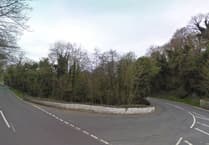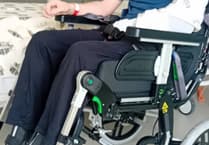The founders of the Bay Festival have been ordered to pay their former advocate £111,000 by the appeals court.
Jonathan and Jamie Irving recently lost their appeal over a rejected multi-million pound negligence claim against lawyer Jerry Carter and have now been ordered to pay costs.
That previous judgment, which spanned some 43 pages related to the winding up of the Irvings’ Street Heritage development company, which was wound up on February 24, 2010, over an unpaid tax bill totalling £182,929.
In the subsequent ruling by Deemsters Storey KC and Marshall KC, Mr Carter and his firm Carters, had sought an order that the Irvings pay their costs of the appeal.
For their part, the Irvings had sought an order for permission to appeal to the Privy Council against the dismissal of their appeals from October 24 and December 6, 2021, against Deemster Corlett’s orders of September 14 and November 5, 2021, dismissing the Irvings’ claim for damages for negligence and/or breach of contract and ordering the Irvings to pay Carters’ costs of the earlier trial on the standard basis.
They also sought an order staying enforcement of all costs orders until the final determination of the appeal process. All of this was rejected by the deemsters. While the Irvings didn’t oppose an order that they pay Carters’ costs, they did seek a summary assessment of the costs, ‘in order to avoid the need for a costly and time consuming detailed assessment’.
However, this was rejected by Carters, with the firm arguing that ‘a statement of costs of this magnitude should be the subject of careful scrutiny’.
The Irvings said that their legal costs were just £40,000 and challenged their liability to pay VAT, the claim of £3,675.50 for the attendance of a second advocate (an associate) at the hearing, un-itemised disbursements of £6,164.74, 225 hours’ work by four fee earners on the documents, the preparation work, totalling more than 185 hours by a Mr Davies of Appleby or any costs related to Carters notice dated November 22, 20212.
In their judgment, the deemsters agreed not to allow the attendance costs of a second advocate at the hearing, but that was the only objection they agreed with.
They said: ‘In a heavy and demanding case involving as many documents as this appeal Mr Davies’ work on the documents of 187.9 hours seems high but not excessively so. It may be that more should have been carried out by the associate, paralegal or trainee, but the costs savings would be minimal given the rates charged.
‘We do not view the length of Mr Davies’ skeleton as inappropriate, given the skeleton to which he had to respond and the 10 grounds of appeal raised in the appeal notice.’
However, they did agree to limit the amount paid for this time, cutting Mr Davies’ claimable hours to 150 hours and 50 hours for preparation.
Deemster Storey and Deemster Marshall summarised Carters’ costs at £109,831.63, which they rounded up to £111,000 to ‘reflect the respondents’ costs in pursuing their application of October 14, 2022, which has succeeded as to a summary assessment, quantum and the refusal of a stay’.
In refusing to stay the order, the Irvings are given 14 days to pay Carters the £111,000.
The final matter the deemsters dealt with was the Irving’s bid to appeal against the dismissal of their separate appeal against Deemster Corlett’s costs order dated November 5, 2021.
They said: ‘In our judgment the points of law raised are not arguable and are certainly not of general public importance.’
The deemsters further added that the factual findings of Deemster Corlett would have produced the same result, because ‘the chances of Street Heritage Ltd’s survival would have been merely negligible’.
They said: ‘The case is highly fact-specific and carries no wider importance for the general Manx public. Further, we question whether the arguments need to be considered now by the Privy Council when success would, in effect, require a retrial before a new Deemster some 12 years after the relevant events.’
However, the Irvings are able to renew their application for special leave to appeal to the Privy Council.


.jpeg?width=209&height=140&crop=209:145,smart&quality=75)

